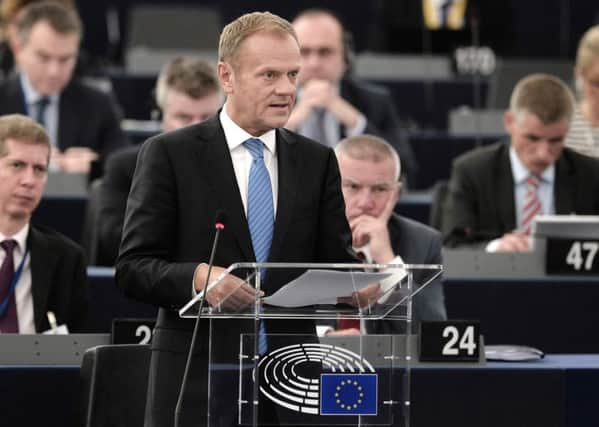Donald Tusk: '˜Negative and often unfair' vision of EU led to Brexit


The European Council president called on national leaders to stop accusing the EU of “weaknesses and failures” and insisted that there could be an “amicable divorce” between the UK and Brussels.
But he warned that the UK could not get access to the single market without accepting freedom of movement and said Brexit would lead to “significantly lower growth” in the economy.
Advertisement
Hide AdAdvertisement
Hide AdAddressing the European Parliament, Mr Tusk said “the EU is ready to proceed with an amicable divorce with the UK even today” and acknowledged that it was for the UK to start the process of Brexit.
But there would be no negotiations on the future relationship between the UK and EU before the Article 50 process had begun, he said, adding “wherever there may be a conflict of interest, we will act in the interest of the EU, and we will do so effectively”.
Hitting out at the wave of Euroscepticism around the continent, Mr Tusk said: “In the current situation, attacks on the EU institutions, including the commission and the parliament, can only deepen the confusion.
“The national capitals must undertake an effort to stop accusing the EU and its institutions of weaknesses and failures. The referendum in the UK was lost, also because the political elites have for years been building a negative and often unfair vision of the EU.
“But there is no EU without the member states either. It is impossible to solve serious problems in the EU against the will of the member states. Taking responsibility for one’s own words applies also to representatives of EU institutions.
“Today we must combine all our efforts to agree on what is our common interest.”